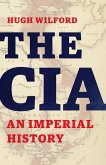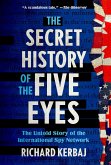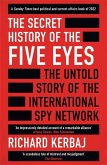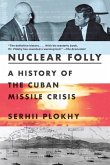"A story as fascinating as it is undersung . . . a riveting account" (The New York Times Book Review, Best Books of 2025 So Far) of the CIA's secret program to smuggle millions of books through the Iron Curtain during the Cold War "Brimming with poetic detail, spring-loaded with tradecraft, English's account feels like it's torn from the pages of Ian Fleming. . . . An indelible reminder that words matter, and that perhaps the most patriotic thing one can do is read."--The Washington Post A BEST BOOK OF THE YEAR: NPR, THE ECONOMIST, KIRKUS REVIEWS For nearly five decades after the Second World War, the Iron Curtain divided Europe, forming the longest and most heavily guarded border on earth. No physical combat would take place along this frontier: the risk of nuclear annihilation was too high for that. Instead, the war was fought psychologically. It was a battle for hearts, minds, and intellects. Few understood this more clearly than George Minden, head of a covert intelligence operation known as the "CIA book program," which aimed to undermine Soviet censorship and inspire revolt by offering different visions of thought and culture. From its Manhattan headquarters, Minden's "book club" secretly sent ten million banned titles into the East. Volumes were smuggled aboard trucks and yachts, dropped from balloons, hidden aboard trains, and stowed in travelers' luggage. Nowhere were the books welcomed more warmly than in Poland, where they would circulate covertly among circles of like-minded readers, quietly making the case against Soviet communism. Such was the demand for Minden's texts that dissidents began to reproduce them in the underground. By the late 1980s, illicit literature was so pervasive in Poland that censorship broke down: the Iron Curtain soon followed. Charlie English narrates this tale of Cold War spycraft, smuggling, and secret printing operations for the first time, highlighting the work of a handful of extraordinary people who fought for intellectual freedom--people like Miroslaw Chojecki, who suffered beatings, imprisonment, and exile in pursuit of his clandestine mission. The CIA Book Club is a story about the power of the printed word as a means of resistance and liberation. Books, it shows, can set you free.
'Vibrant, beautifully researched and exciting... a real pleasure to read - a finely written page-turner full of well-researched stories of smuggling, intrigue and survival'
Guardian
'This covert CIA programme to undermine censorship in the Soviet bloc is the subject of Charlie English's impressively detailed account... English does a first-rate job in piecing together this patchily known story in efficient, pacy prose'
Spectator
'Entertaining and vivid... This is a gripping account of an intriguing and little-known Cold War moment'
Observer
'Gripping...an extraordinarily detailed account of how the [CIA] Book Club set about capturing hearts and minds'
Daily Mail
'Reads like a thriller'
The Sun
PRAISE FOR THE BOOK SMUGGLERS OF TIMBUKTU
'An exemplary work of investigative journalism that is also a wonderfully colourful book of history and travel'
William Dalrymple, Observer, Books of the Year
'This spellbinding record of Timbuktu's intellectual heritage blends accounts of European explorers to the ancient city with contemporary reportage'
New Yorker
'A piece of postmodern historiography of quite extraordinary sophistication and ingenuity [written with] exceptional delicacy and restraint'
TLS
'Part reportage, part history, part romance and wholly gripping a riveting read'
Sunday Times
Guardian
'This covert CIA programme to undermine censorship in the Soviet bloc is the subject of Charlie English's impressively detailed account... English does a first-rate job in piecing together this patchily known story in efficient, pacy prose'
Spectator
'Entertaining and vivid... This is a gripping account of an intriguing and little-known Cold War moment'
Observer
'Gripping...an extraordinarily detailed account of how the [CIA] Book Club set about capturing hearts and minds'
Daily Mail
'Reads like a thriller'
The Sun
PRAISE FOR THE BOOK SMUGGLERS OF TIMBUKTU
'An exemplary work of investigative journalism that is also a wonderfully colourful book of history and travel'
William Dalrymple, Observer, Books of the Year
'This spellbinding record of Timbuktu's intellectual heritage blends accounts of European explorers to the ancient city with contemporary reportage'
New Yorker
'A piece of postmodern historiography of quite extraordinary sophistication and ingenuity [written with] exceptional delicacy and restraint'
TLS
'Part reportage, part history, part romance and wholly gripping a riveting read'
Sunday Times








